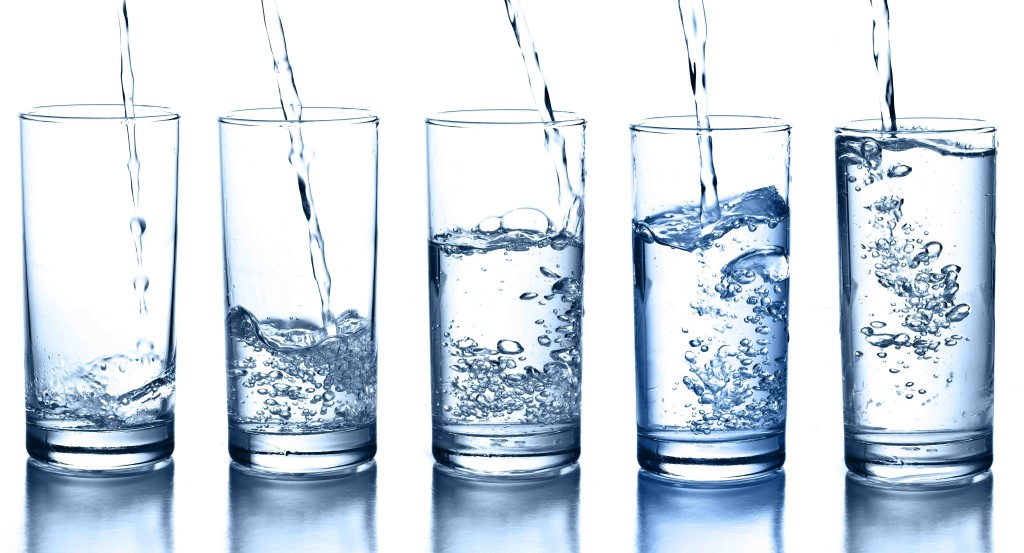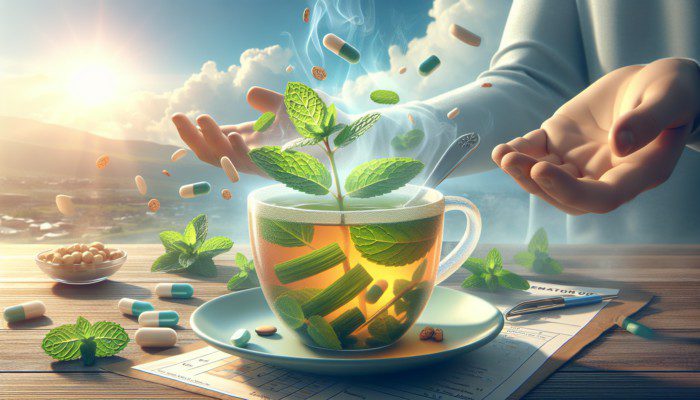Book Appointment Now

Life Giving Water For Healthy Living
Plain water is highly recommended for daily fluid intake. Proper hydration is vital for good health and well-being. Poor hydration can affect one’s mood, concentration and performance negatively, and has recently also been linked to an increased risk of chronic diseases. Drinking enough water also helps produce more urine, which helps to flush out infection-causing bacteria.
What should we drink every day?
Fluid intake in healthy human beings is regulated by thirst. Water is an essential nutrient for life and is considered the ideal drink to quench thirst and ensure hydration. Ironically, it is often ignored in dietary recommendations.
Drinking plain water (H2O) helps the body flush the kidneys and liver without having first to process out any additives it. This makes water the ideal drink first thing in the morning and last drink at night. Despite the benefits of plain water, many people prefer other drinks such as cool drink, fruit juice, coffee, tea, milk or sport drinks. These beverages could contribute to the daily energy intake.
How much?
The USA’s National Research Council (NRC) recommends a daily H2O intake of about 1ml/kcal energy expenditure, which translates to about 8 glasses of water per day. This recommendation is based on an average-weight (70 kg) male . However, no single formula fits every individual or every situation, since water intake recommendations also depend on other factors such as activity, humidity, climate, body temperature and body composition.
Water forms part of every cell in the body. Comprising on average 50% of a woman’s body weight and 60% of that of a man. Every system and function in the body depends on water. H2O for example, helps with the digestion of food, carries nutrients to cells, and provides a moist environment for ear, nose and throat tissues.
The amount of fluid consumed each day should be equivalent to approximately the amount lost.
Mild dehydration affects a wide range of cardiovascular and thermo-regulation processes and responses. Dehydration of 3-5% of body weight decreases physical strength and performance, and is the primary cause of heat exhaustion. Water losses from the lungs and skin (500ml – 1 litre/day) are responsible for approximately half of the daily turnover. And losses from stools and urine account for the rest of the daily losses. Yet, despite changes in body composition, function and the environment, most healthy people manage to regulate their daily water balance well across their lifespan.
Why is water the best possible choice?
Water is highly recommended for daily fluid intake. Some studies have shown that plain water consumption is associated with better diets, better health behaviours, and a lower burden of chronic disease. It provides no additional energy, which makes it ideal for overweight or inactive adults. It also provides variable amounts of minerals such as calcium, magnesium and fluoride, depending on its source.
Despite plain H2O fulfilling almost all the fluid needs of healthy adults. In most developed Western societies, diets provide an excess of total energy, which is associated with obesity and so-called lifestyle diseases.
Obesity and overweight are mainly caused by an imbalance between energy consumed and energy expended:
- an increased intake of energy-dense foods that are high in fat or added sugars; and
- a decrease in physical activity due to the increasingly sedentary nature of many forms of work, changing modes of transportation, and increasing urbanisation/development.
South African adolescents and learners are at an increased risk for environmental factors that cause obesity. For example, they are more likely to consume sugar-sweetened drinks, they are less likely to compensate for “fast food” energy, and they generally consume more energy-density foods (e.g. sweets, chocolate, and chips).
South Africa has a heavy burden of infectious diseases (such as HIV/AIDS and tuberculosis). These exist alongside diseases of lifestyle (non-communicable diseases) such as under-nutrition, over-nutrition, diabetes, hypertension and cancer. Diet-related non-communicable diseases account for 28% of the total burden of disease in South Africa. Specific dietary and lifestyle changes have been observed in the consumption of alcohol, tobacco and food – particularly a shift to a diet high in sugar, salt and saturated fat – along with the reduction in physical activity.
Recommendations for South Africans

- Water fulfills almost all the fluid needs of healthy adults.
- Women should drink at least 4 (250ml) glasses and men at least 6 glasses of clean, safe water per day.
- Children should drink water when thirsty and limit their intake of milk and fruit juice.
- Drinks should not contribute to more than 14% of total daily energy intake.
- Schools should encourage children to meet their fluid needs with water. By providing clean, safe water, and limiting the availability of other cool drinks/juices.
- Sweetened cool drinks (including carbonated cool drinks) should be limited. Ad avoided by diabetics and inactive and/or overweight adults and children.
- Fruit and vegetable juices (100% juices) and sports drinks should be limited to no more than one standard cup per day.
Nutrition Information Centre of the University of Stellenbosch (NICUS)
Faculty of Medicine and Health Sciences Stellenbosch University (SUN)




[…] convert to fat and are stored when you eat too much of them. To boost your good cholesterol:- Drink water! Have several portions of avocado, raw nuts and seeds and increase your fibre intake with veggies, […]
You’ve touched on some excellent points about boosting good cholesterol. Staying hydrated is crucial, and drinking enough water can have a ripple effect on overall health. When it comes to avocados, raw nuts, and seeds, they really do pack a nutritional punch. They’re filled with healthy fats that can contribute to heart health, which is what we want.
You bring up some great points about boosting good cholesterol. Drinking water is such a simple yet effective habit. I’ve found that staying hydrated makes a noticeable difference in how I feel throughout the day. Your mention of avocados, nuts, and seeds resonates with me—those are such delicious and nutrient-dense options.
You’ve touched on some really important aspects of maintaining good health. Staying hydrated really does make a significant impact on our overall well-being. It’s fascinating how often something as simple as drinking water can affect our mood, energy levels, and even our clarity of thought throughout the day. I’ve noticed it helps me feel more focused, too, especially when I’m juggling multiple tasks.
You raise some really interesting points about good cholesterol and the role of our diet. It’s true that we often hear about the need to manage bad cholesterol, but the conversation around boosting good cholesterol feels a bit underrated. Drinking water, incorporating healthy fats like avocado, and munching on raw nuts and seeds can make a noticeable difference in how our body processes cholesterol.
[…] convert to fat and are stored when you eat too much of them. To boost your good cholesterol:- Drink water! Have several portions of avocado, raw nuts and seeds and increase your fibre intake with veggies, […]
It’s interesting how our choices around food can have such profound impacts on our health. I’ve definitely found that incorporating things like avocado and raw nuts has made a noticeable difference in how I feel. It’s not just about boosting good cholesterol, but also about finding joy in those healthy foods.
It’s great to hear you’re experiencing such positive changes with your food choices. Avocado and raw nuts are more than just trendy ingredients—they’re packed with nutrients that can really enhance our well-being. When you mention feeling joy in those healthy foods, it strikes a chord. Eating well shouldn’t feel like a chore; it’s about savoring flavors and textures that make us feel good both physically and mentally.
It’s really great to hear how incorporating avocado and raw nuts has made a difference for you. Those small changes can really reshape how we feel overall. It’s fascinating to think about food not just as fuel, but as a source of joy and satisfaction. Finding healthy foods that we genuinely enjoy can make a big difference in sticking to those choices.
I really resonate with what you said about food being more than just fuel. Over time, I’ve found that the foods we choose can really shape our mood and energy levels. Avocados and raw nuts have become staples for me, not just for their health benefits but because they’re so versatile.
I appreciate your reflections on how food intersects with our well-being. It’s fascinating how something as fundamental as what we eat can influence our mood and energy levels. Avocados and raw nuts are fantastic choices for all the reasons you mentioned—they offer a wealth of nutrients while also providing that satisfying, creamy or crunchy texture that adds variety to meals and snacks.
It’s fascinating how something as simple as our food choices can shape our overall well-being. I’ve also noticed that incorporating nutrient-dense foods like avocados and nuts really impacts my energy levels and mood. There’s something satisfying about those healthy fats that not only feel good physically but also add a level of richness to meals.
It’s interesting how those little changes in our diet can lead to such noticeable differences in how we feel. I’ve had a similar experience with incorporating more nutrient-dense foods. I started adding chia seeds and a variety of greens into my meals, and I noticed a difference not just in my energy but also in my overall mood.
You’ve hit the nail on the head! It’s amazing how swapping out a bag of chips for a handful of nuts can turn our snack time into a mini mood-lifting fiesta. Those healthy fats really are like little mood elevators, right? You start with a few almonds, and before you know it, you’re strutting around like you just discovered the secret to happiness.
It’s interesting how you mention the impact of nutrient-dense foods like avocados and nuts on your energy and mood. Those healthy fats can really elevate meals—not just in taste, but in how they make us feel. I’ve found that adding even a small handful of nuts or a slice of avocado can transform a simple dish into something satisfying and hearty.
It’s great to hear how incorporating foods like avocado and raw nuts has made a positive difference for you. It’s fascinating how something as simple as our food choices can not only impact our physical health but also our overall sense of well-being. Avocado, with its healthy fats, isn’t just a trend; it offers nutrients that can help with heart health, and its creamy texture makes it a delightful addition to so many dishes.
Incorporating foods like avocado and raw nuts into my diet has truly been eye-opening. It’s interesting how the benefits of these foods extend beyond just physical health; they also play a role in enhancing our mood and overall quality of life.
You’re spot on! It’s wild how the munchies we choose can shape not just our waistlines but our mood and energy too. Avocados and raw nuts—those little green wonders and crunchy delights—are prime examples of how food can be both a fuel and a treat. I mean, spread some avocado on a slice of toast, and suddenly you’re a culinary genius, right?
You’ve raised some great points about boosting good cholesterol. I’ve started incorporating more avocados and raw nuts into my diet lately; they have such a satisfying richness and definitely help when I’m looking for a healthful snack. It’s interesting how something as simple as water can have such an impact, too. Staying hydrated is often overlooked but so vital for overall well-being.
It’s great to hear you’re incorporating more avocados and raw nuts into your diet. They really do add that satisfying richness, don’t they? I’ve been a fan of nut butters lately—spreading almond or cashew butter on whole-grain toast has become one of my go-to snacks. It’s a delicious way to boost nutrition without feeling like I’m sacrificing flavor.
Your suggestions for boosting good cholesterol are spot on. Drinking water, enjoying avocados, and incorporating raw nuts and seeds can really make a difference in overall heart health. It’s interesting how often we overlook fiber in our diets, especially when it comes to veggies. Getting creative with how we prepare and enjoy them can make a significant impact.
[…] the red and white cells, platelets, nutrients, electrolytes and hormones to tissues. Help it by keeping hydrated with at least 2 litres of water a day. Watch for dehydration, dizziness or weakness. Disorders […]
You make a solid point about the importance of hydration. Water really is a cornerstone for our bodies, serving as a medium for a lot of vital processes. When we think about what happens when we’re not drinking enough, like dizziness or weakness, it illustrates just how essential it is for maintaining balance.